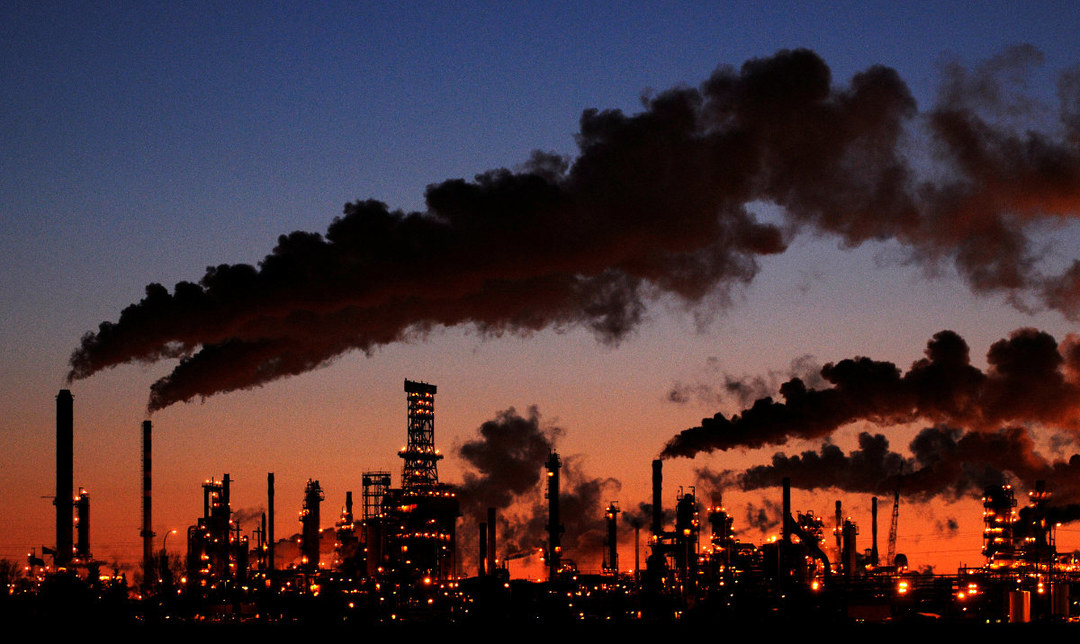In December 2015, 196 parties negotiated the landmark Paris Climate Accords, sparking hope within humanity that we were finally prepared to make the necessary efforts to drastically reduce carbon emissions and limit average global warming to 1.5 C.
It had taken us an excruciatingly long time to get to that point, after decades of collective ignorance and blindness. And this was despite amassing evidence that our consumerist and industrial lifestyles were directly to blame for increasingly violent and deadly climate chaos that would ultimately imperil our entire existence.
Unfortunately, the ensuing moment of hope appears to have melted away, putting us on a current trajectory of almost 3 C warming of average temperatures, with climatic consequences we have started to experience across the planet.
Ours is, alas, the era in which we are losing faith in the postwar institutions of international cooperation such as the UN. We are all aware that not only did the UN over the decades prevent cold wars from going hot, but that the work of UN agencies such as the World Health Organization, the World Food Programme, UN High Commissioner for Refugees or the UN Children’s Fund, made a tremendous difference to the lives of literally billions of less fortunate human beings.
Today, the UN appears unable to rally the necessary international consensus and cooperation to play any significant role in cooling the Ukraine conflict or in resolving other crises around the world.
The global institution appears also to have lost the goodwill expressed by the 195 parties signatory to the Paris Climate Accords.
As anyone who knows the UN system will tell you, if its member countries cannot agree on a way forward, then it is effectively rendered powerless.
With signatories to the Paris Climate Accords mostly protecting their own interests and expecting others to make the adjustments required by the agreement, the Paris objectives have to all intents and purposes been tossed to the wayside.
This highlights the greater problem we face: a shared lack of urgency in how individual nations adjust only in the least costly way to themselves, expecting others to fill the widening gap.
We are not helped by the complexity of the science around climate change and its possible mitigation. A wide variety of scientists and their personal biases are broadly instrumentalized to serve contradictory narratives about climate change.
Just the other day I watched a PBS documentary proffering hope that a number of nascent technological solutions would allow us to mitigate climate change, while the scientific voices assembled for the 60-minute program essentially concluded that humanity and our planet are already doomed.
On one hand, we are experiencing the warmest average temperatures since records began this year, and, on the other, we see young technologists developing innovative ideas intended to reflect heat away from our planet or to transform carbon emissions into a source of energy and growth.
The idealist and catastrophist narratives elaborated in this way will of course mostly convince the already-converted. This sadly means that many people will refuse to accept that both the vast destruction already evidenced and the promise of employing an array of different methods — old and new — to mitigate climate change can and must coexist for us to act.
Most of us are simply left dizzy by the seemingly contradictory narratives that have been constructed around climate change: one, that it does not exist, two, that it is already too late or three, that it will without doubt be tackled by human ingenuity.
It is all rather confusing and, as we seek to understand, we are losing the opportunity to come together convincingly.
Can we not simply agree that we must use every method at our disposal to make a difference, on one hand cutting emissions and waste, and, on the other, encouraging promising projects that could each play a role in allowing us to prevent yet greater global devastation?
It is time for us to break out of this Cold War-type narrative of climate change and consider instead that we are facing a situation caused by a multiplicity of complex factors that can likely only be relieved by employing a multiplicity of methods and approaches — each yielding one small part of the relief our planet is so vocally calling for.
• Hassan bin Youssef Yassin worked with Saudi petroleum ministers Abdullah Tariki and Ahmed Zaki Yamani from 1959 to 1967. He led the Saudi Information Office in Washington from 1972 to 1981 and served with the Arab League observer delegation to the UN from 1981 to 1983.













